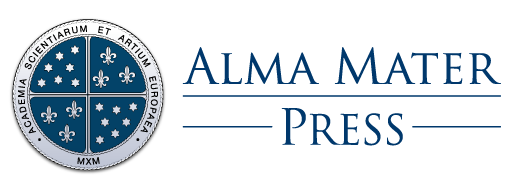Archives and its Role in Preserving the Nation Memory: Legal and Scientific Use of the Records and the Role of National Records and Archives Authority in Oman as a Model
DOI:
https://doi.org/10.33700/2670-451X.26.2.197-208(2016)Keywords:
National Records and Archives Administration, Sultanate of Oman, scientific use, legal use, public use, archival processingAbstract
The history of archives is very old. Thousands of clay tablets dating into to the third and second millennium B.C were found in cities such as Elba, Syria (2350 B.C.). These archives have been fundamental for understanding ancient alphabets, languages, culture, political and social structure prevailing in those time. Archives were established by the Church from the fifth century and are kept till nowadays. People started to register and record their activity and events, in the rocks, animal bones and skin. Archives play an important role in the nation memory. Archives and records are important for organizations, individuals and the community. They give and provide us an evidence and information about past events and actions. Record keeping has a long history in different civilization, and archives transfer to us the evaluation of the human mind and the understanding of different events during the history, like the collapse of civilization, boundaries dispute, wars that decimated the humans... Archives collect original unpublished material or primary sources; these records are unique and irreparable. If an archival record is damaged, stolen or exposed to various dangers such as wars and terrorist attacks, the information it contains is lost forever. Archives can be an incredibly rich holder of information that should be kept according to legislation and regulations in favour of the archive staff or its clients and should enable the scientific, legal and public use of preserved archival records. This paper will describe in brief these uses and reflect to National Records and Archives Authority in Oman as example.
Downloads
References
Millar, Laura A. (2010). Archives: principles and practices. London: Facet Publishing.
Fox, Lisa L. (1978). Reservation Microfilming, A guide for Librarians and archivists, second edition.
Yahya Yai, Abdullah (2015). NRAA EDRMS project guidelines.
Privacy and Confidentiality (2015). Available at http://www.pre.ethics.gc.ca/eng/policy-politique/initiatives/tcps2-eptc2/chapter5-chapitre5/ (accessed April 2016).
Panel on Research Ethics (2016). Available at www.pre.ethics.gc.ca (accessed April 2016).
Health & Safety Handbook – National Archives of Scotland. Available at http://www.nas.gov.uk/documents/hsHandbook.pdf.
http://www.microfilm.com/an-introduction-to-microfilm/reservation
Archive Principles and Practice: an introduction to archives for non-archivists (2011). Available at http://www.nationalarchives.gov.uk/documents/information-management/archive-principles-and-practice-an-introduction-to-archives-for-non-archivists.pdf.
Schmidt, L. (2016). Using Archives: A Guide to Effective Research. Available at http://www2.archivists.org/usingarchives#.VzGnO4R95D8 (accessed April 2016).

